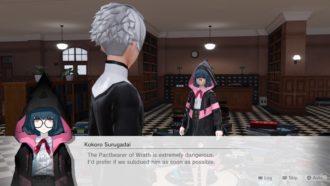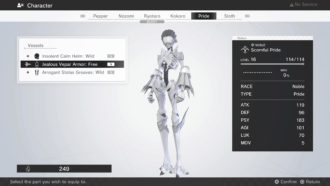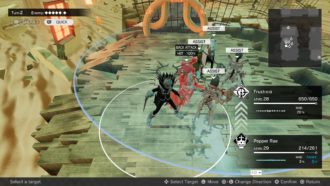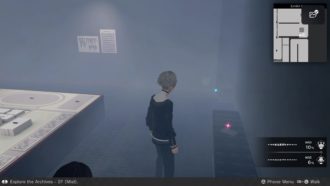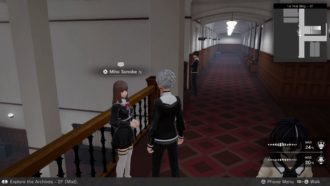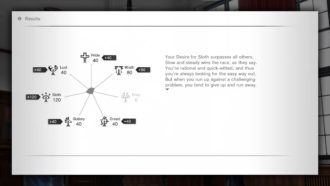Platforms:
PS4, PC, Nintendo Switch, PS5
Released:
February 25, 2022
Publisher:
NIS America
Developer:
FURYU
Monark is a JRPG set in a high school where the protagonist and a posse of other teenagers must protect themselves from demonic creatures. The teenagers fight by partnering themselves with demons themselves, and forge bonds with each other as they get stronger. The game is ripe with themes of identity and clashing ideals, with the protagonists going up against other students and school faculty who have traumatic backstories that explain their differing outlooks on life. All the while, an underlying mystery waits to be discovered.
If this sounds familiar to you, that’s to be expected. The Megami Tensei and Persona series have been massively influential to JRPGs, spawning games like The Caligula Effect as well as this one. Monark utilises a lot of aspects you’ll be familiar with, although it doesn’t stand out in any one area. You can call it a Persona rip-off if you want, but those of us who enjoy these JRPGs won’t mind some borrowed features as long as the game itself is good. Monark gives an honest effort, but only achieves so much.
Shin Mikado Acadamy has been trapped in a mysterious magic barrier that prevents anyone from entering or leaving. In addition, many areas of the school campus are covered in a madness-inducing mist that is causing havoc and tragedy among the student body. The protagonist, a second-year student who has lost his memory, is tasked with saving the day. The gameplay itself is a mix of turn-based combat, puzzle-solving, and running around to find the next plot point.
Monarks, sins, and Ego
The protagonist makes a pact with a daemon called a ‘Monark’ by the name of Veritas, who is a stuffed bunny mascot (There’s always gotta be a mascot) with a penchant for speaking in rhymes. This might have gotten annoying if it wasn’t for the impressive quality of voice acting that is constant throughout almost the entire cast. The goal is to defeat the 7 other Monarks — all named after the seven deadly sins, because of course — and the humans they’ve made pacts with.
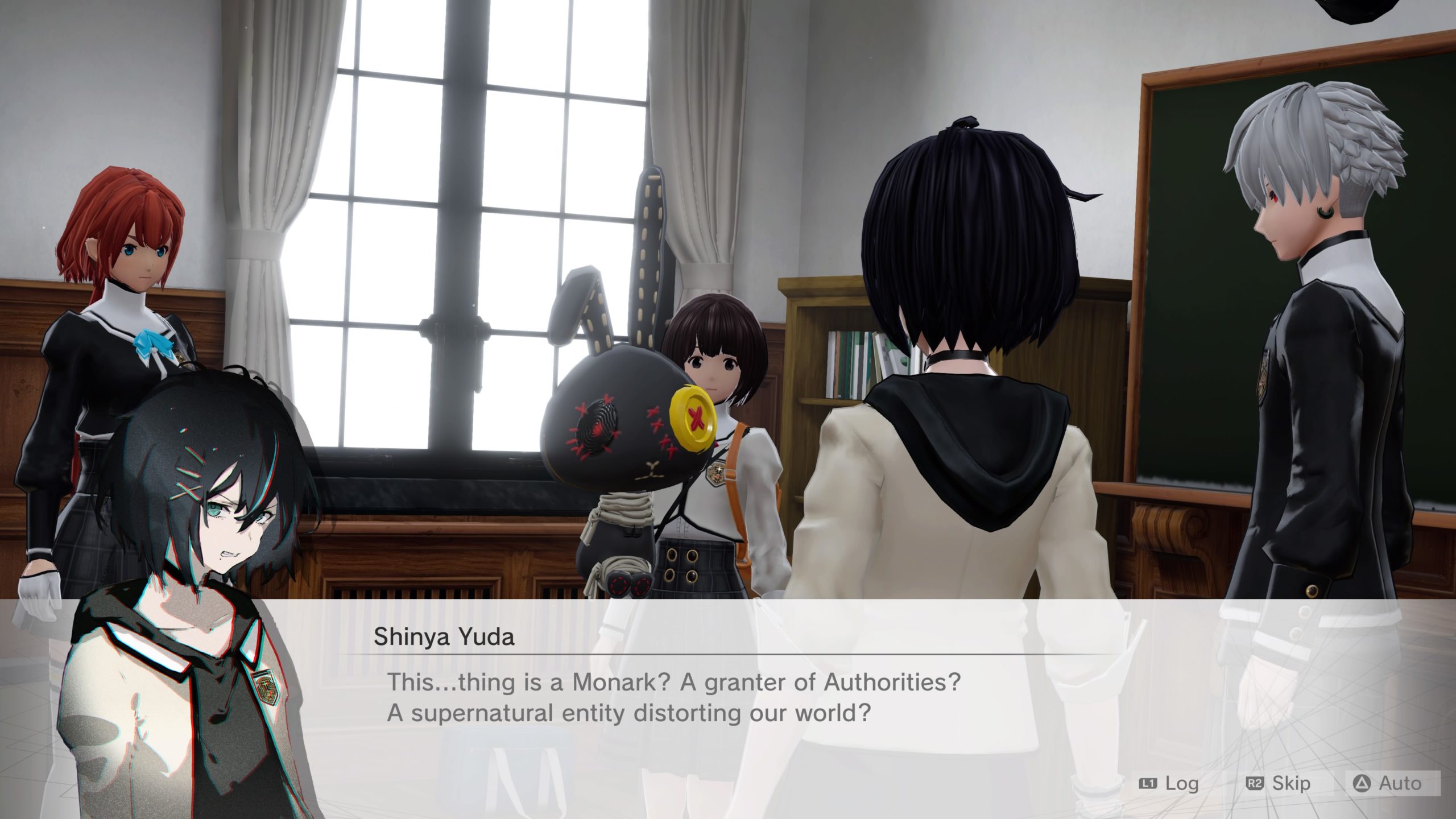
The game never treats these traits like sins, though, which is refreshing. It takes a non-judgemental tone, treating the traits as neutral for the most part. In fact, the game often treats the traits as aspirational, as though they are a natural part of one’s personality. With that being said, I couldn’t tell you for sure if that’s the game’s intended message. The word ‘ego’ is thrown around constantly, but it’s a vague term that is never really defined. Even the abilities of the seven ‘Pactbearers’ are only very tangentially related to their namesake. It feels like the theme has been tacked on lat-minute and hastily tied into unrelated plot threads.
Despite the vague theming, the plot itself manages to be rather good. It has some predictable plot points, but it had enough substance to make it worthwhile. Its main detracting factor is actually the dialogue. None of the characters manage to talk quite like real people: despite some surprisingly dark events such as the deaths of students, their reaction is to act slightly dismayed before returning to the task at hand. The writers know that the player won’t exactly care about the deaths of ‘Male Student B’, so they have the characters move on quickly. It’s hardly a dealbreaker, but it ruins what otherwise would be some well-needed dramatic tension.
The 2D character illustrations are gorgeous, but the 3D models just don’t measure up. They look several generations behind, and it detracts from scenes that would otherwise be emotional.
To defeat the pactbearers, you delve into the misty halls of the school to find the link to the ‘Otherworld’ (again, there’s always an other world) where the Monark awaits. It’s decently spooky at first, but after a while, it just started to look bland and samey. Just because it was cool in Silent Hill 2 doesn’t mean it’ll work here, guys. These dungeons are often short and sweet, not lasting for more than an hour (and often not even that if you don’t include battle time).
Combat is turn-based: all units can move within a certain radius and then take an action, whether that be attacking or using an item. Positioning is important here, as enemies may counterattack depending on what weapon they have and how far away you are. Nearby allies may also perform an assist attack if they are within range. A system like this rewards strategic thinking and encourages you to make the most out of each round. The battles can get decently challenging, although this is largely because of a few irritating difficulty spikes.
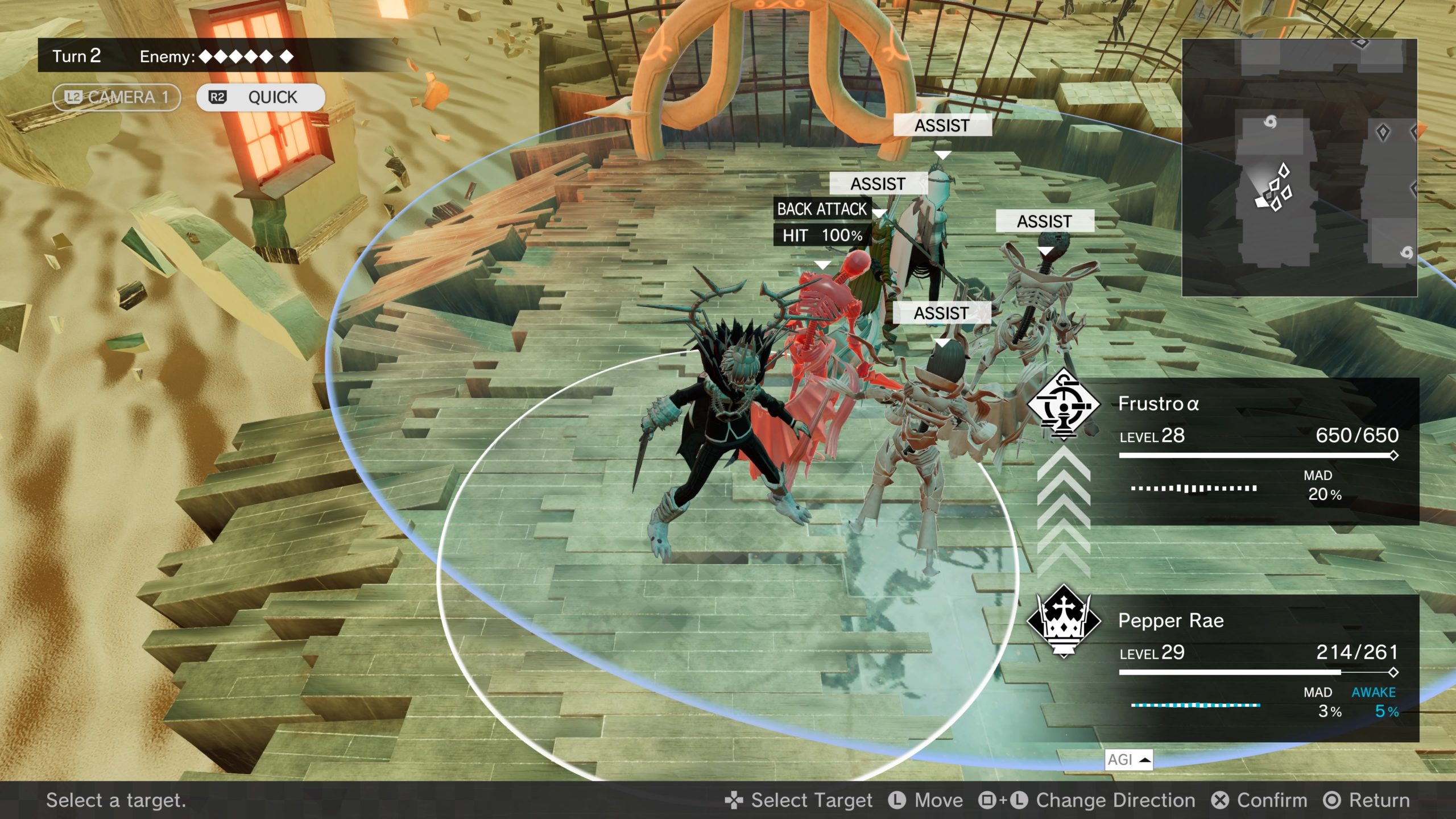
There are a couple of combat abilities unique to Monark. The main character can ‘Resonate’ with allies or enemies, sharing any status effects and stat changes to the receiving unit. It’s a unique combat mechanic that opens up new ways to strategise or turn the tide of a battle. It’s pretty satisfying to take resonate with an enemy that has used its turn to buff their attack, then devastate it with its own attack buff. Apart from that, it’s fairly standard for a JRPG. During boss fights with pactbearers the music takes it up a notch, using Jpop songs to let you know that it’s getting serious. This is the OST at its best
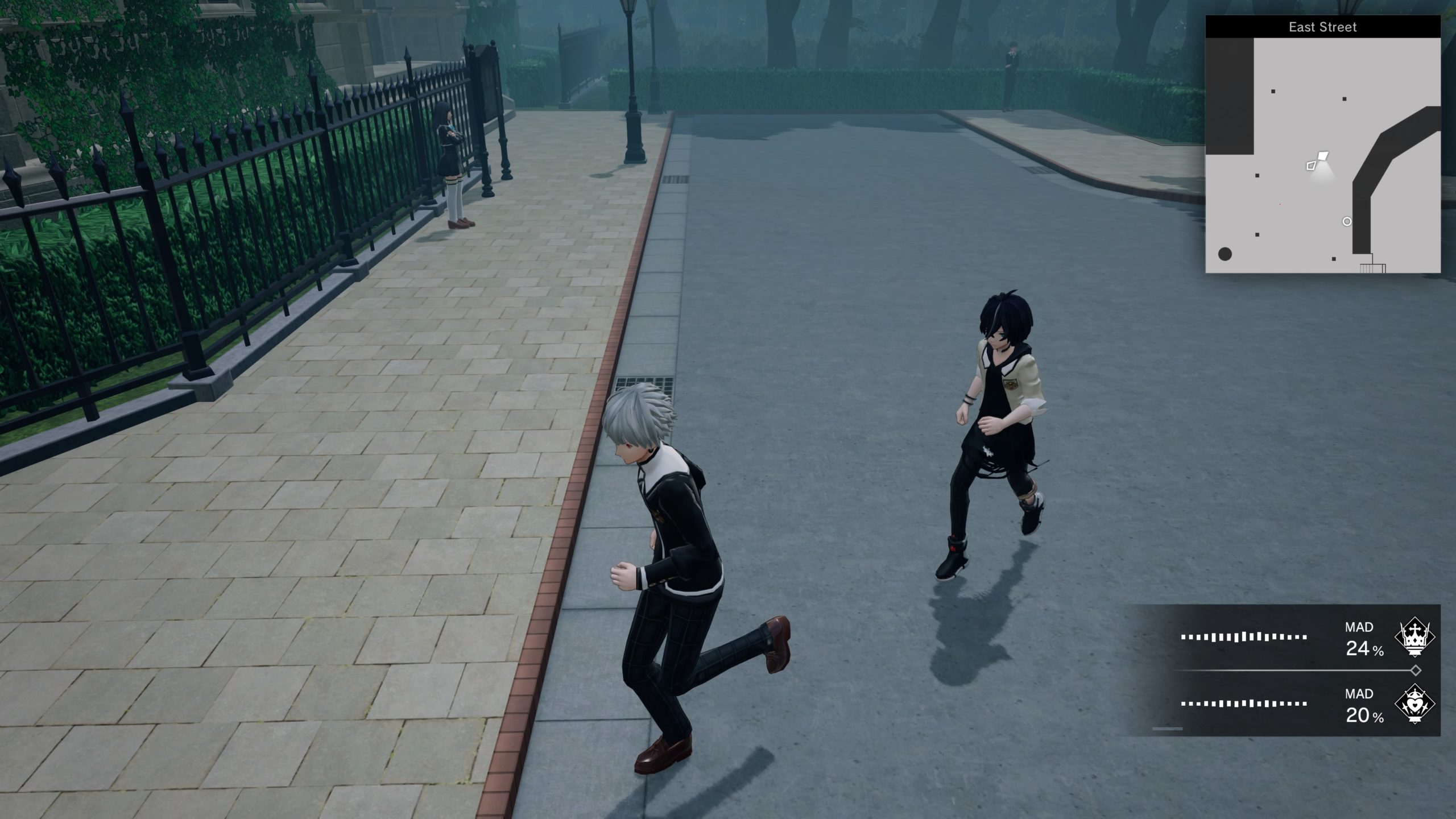
The school and its surrounding grounds is enormous, but there isn’t much to do in it. This is a problem The Caligula Effect: Overdose suffered from, although that game at least featured student NPCs that would give you sidequests, inane and boring as they were. But despite the fact that Monark has lovingly written out character profiles for each of its 150+ students and faculty, it doesn’t give you anything interesting to do with them. The only value in talking to them is so that one of them might offer you one of the game’s many psychology tests.
Far be it from me to suggest that Monark take yet another page from Persona’s book, but it seems like a missed opportunity to hang out with your party members or complete some sidequests around campus.
“… only ever scratches the surface of what could be possible.”
While exploring the misty dungeons, the student profiles become a bit more relevant to solve some of the puzzles. For instance, several puzzles require you to check certain profiles for info such as student IDs, which class they are in, or their date of birth. My favourite of these required me to find out which class a student was in and actually exit the dungeon to visit that classroom to find the next clue. These puzzles are great, but they are too few and far between, and it still only ever scratches the surface of what could be possible. Most dungeon puzzles simply consist of wandering around and finding sparking objects in the mist, revealing a note with a riddle or clue on it. It’s not exactly exciting, but at least it satisfied the collectable fiend within me.
6
Decent
Positive:
- Entertaining story concept, even if it's not too unique
- Battle system is engaging enough to last the runtime
- Good-looking character illustrations and voice acting
Negative:
- Doesn't stand out from other JRPGs
- Stiff, lifeless 3D models
- Large, empty map with little to do
Monark has all of the dot points needed to be a great game, but it just doesn’t go far enough to stand out in any one area. It has a few great nuggets of ideas that would have been great to see expanded upon, but it barely scratches the surface. There are too many areas that were lacking either visual flare or gameplay substance for it to be memorable among titans like Persona and Megami Tensei. Despite that, it still might be worth playing for fans of the genre. It’s like popcorn — it’s not a masterpiece, but it’s easily consumable and will scratch that JRPG itch.
